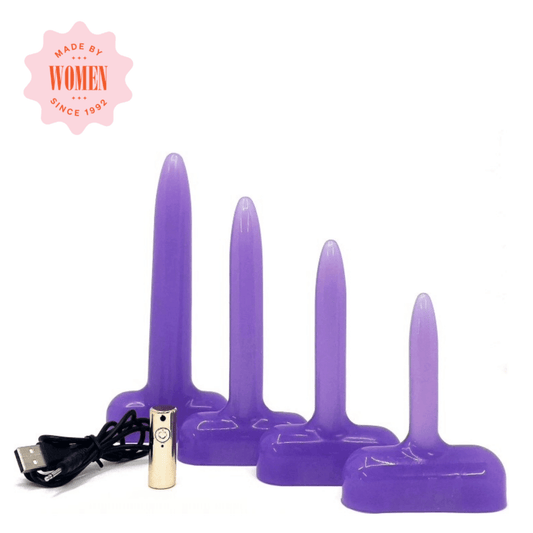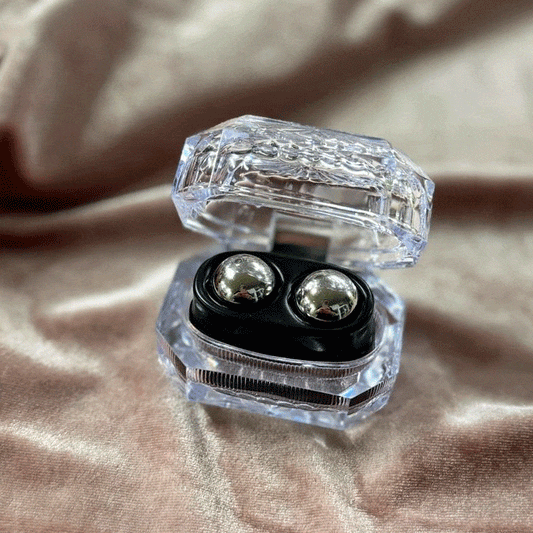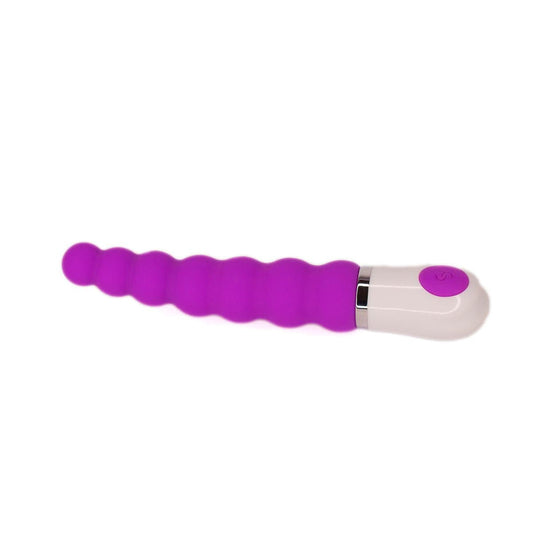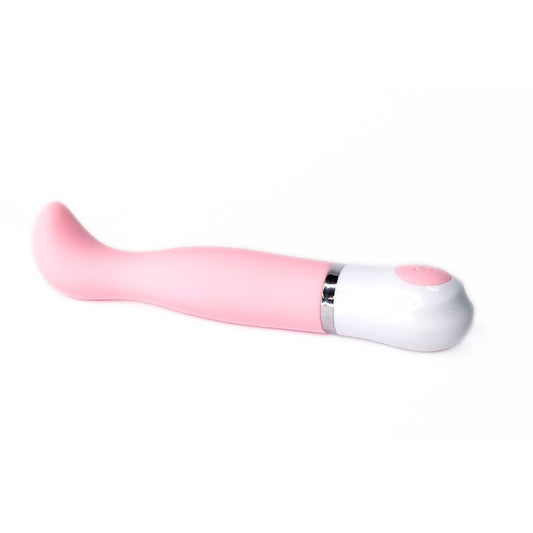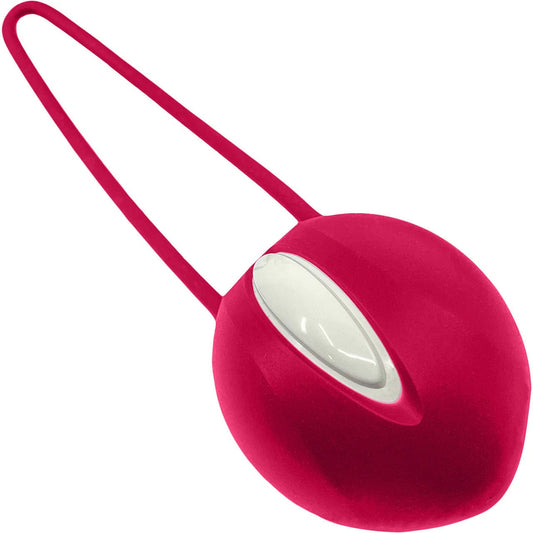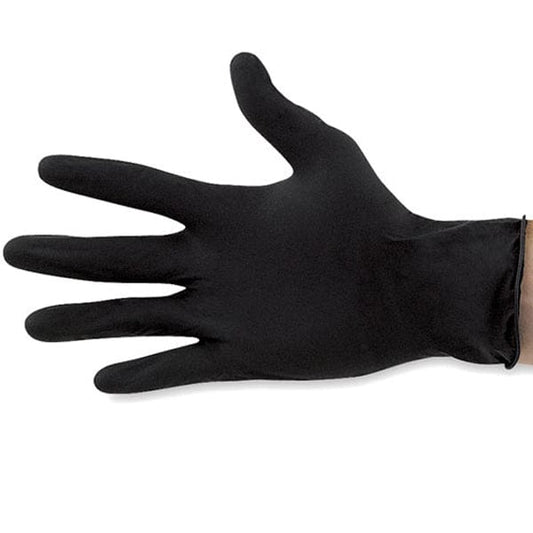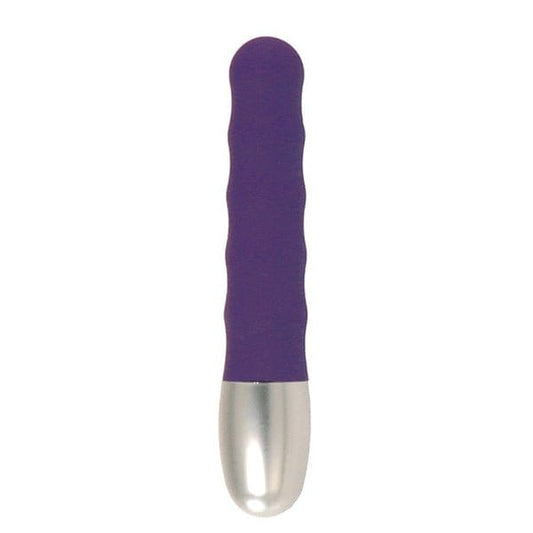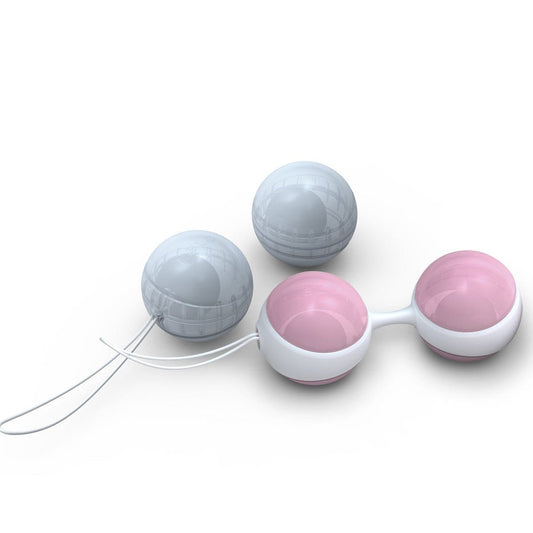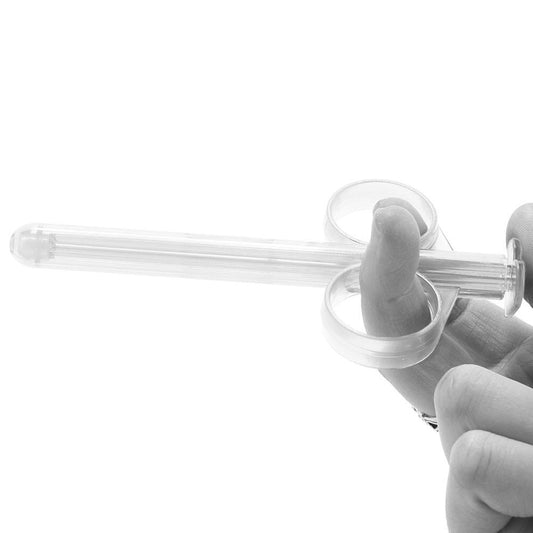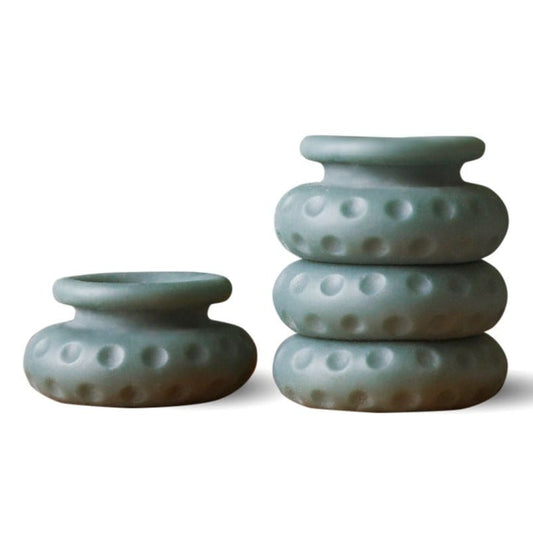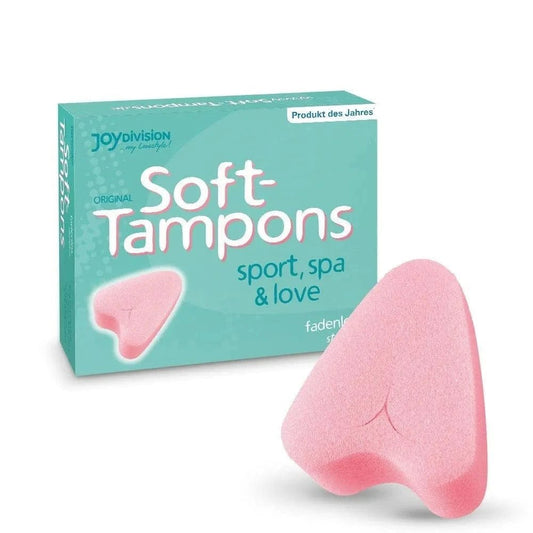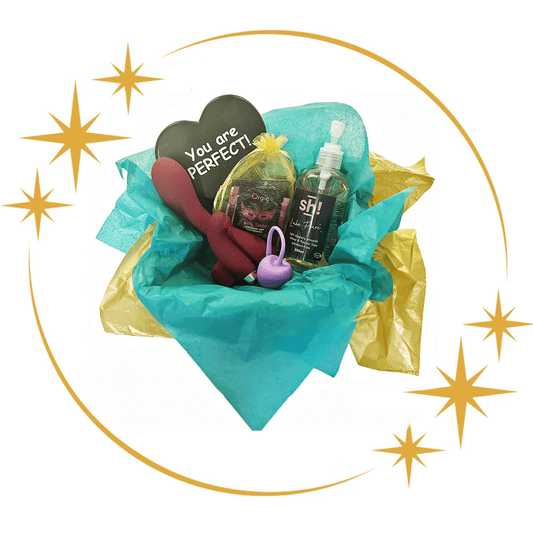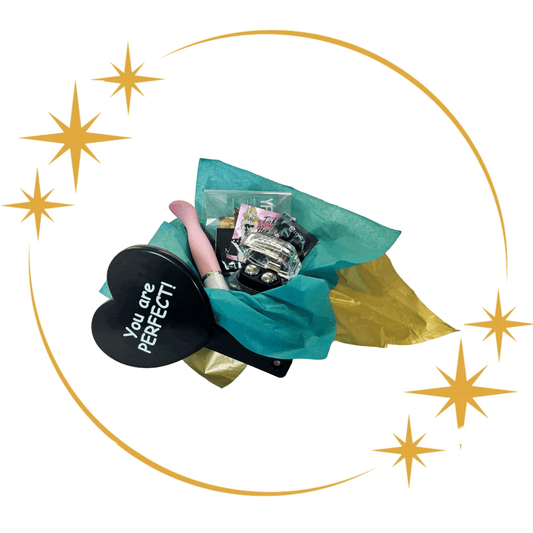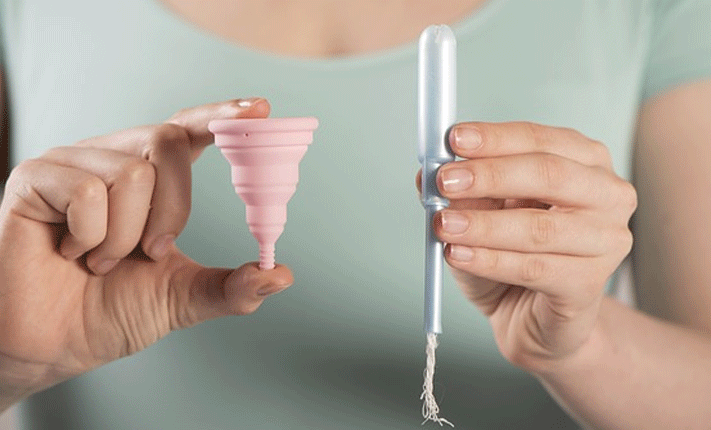Warning: this blog post contains references to sexual violence and this could be triggering for some readers. If you start to feel anxious or unwell when reading this post, we recommend leaving the page and instead doing something you find calming and enjoyable. This article is going to be here for a long time, so you can always come back when you feel stronger and ready to read it.
This blog post has been written specifically to offer advice and suggestions for those in recovery from sexual trauma who are ready to start having sex again.
It is not a self-help guide, and if you have experienced sexual trauma and need immediate support, we recommend contacting Rape Crisis or another expert organisation in your area.
Returning to pleasurable sex after assault, abuse and/or rape is tough, there is no way around that...
But, the good news is that it IS possible. Before starting the journey, it's important that you are mentally and emotionally ready. If you haven’t yet had care and counselling since your assault(s), we think it’s best to do this, before going any further. It's important to remember that however you are feeling about sex (whether alone or with a partner(s)) and however you are responding to your body/intimacy/ the idea of sex, is all normal and perfectly valid, as are your feelings or reactions to your rape, abuse or sexual assault.
My Body Back Project found that women often feel alone in their feelings towards their bodies, body-image, sex and pleasure after sexual violence, using words like 'freak', 'weird' and 'something wrong with me' and it's important to remember that you are not alone or abnormal if you are feeling disassociated or traumatized, long after the assault.
In this blog post, we're going to specifically focus on penetration and oral sex, and aim to give practical advice on how to enjoy one or both when you are ready. Remember though, there are many ways to reclaim your body and pleasure, so if simply practicing mindfulness (staying in the moment) as you focus on how warm water feels on your skin, as you shower is as much as you can manage, at the moment, that's good - any kind of pleasure you can feel with your body are vital and valid steps...
For survivors of sexual violence, spontaneous sex is probably off the cards - for now. Planning is vital.
There will be triggers, some small, some big, and it is useful to have some idea of what they are and how to cope when they happen. The first place to start is to think about is where would feel the safest place for you to try having sex or intimacy. You may find it much more comfortable to be in your own bedroom, surrounded by things that are familiar.
The room will smell "right" which in itself can be very comforting. Using freshly laundered sheets is another good idea, make sure to use a detergent and softener you like the smell of. Having a relaxing bath or shower can help. Knowing that you feel and smell clean can be important.
The same goes for your partner. They should shower or bathe with products that have been "approved" by you. Scent-memory is very strong and can evoke memories within seconds. Using only products you like will ensure your partner smells "right" and help you feel comfortable.
A dark room may feel scary, but bright lights could be equally unsettling. Try a couple of small bedside lamps and see how that feels. Scented candles can be useful too - again creating an atmosphere that's soothing and enjoyable.

Telling your partner about your sexual assault, abuse or rape.
Whether or not you tell your partner is another thing you need to think about. For this blog post we'll assume you have, although we understand this may not be the case. It is sometimes easier to not 'disclose'; having to wade through painful memories and then dealing with the other person's reactions and emotions can be tiring, and leave you feeling vulnerable.
It is entirely up to you how you choose to handle this. Whether or not you tell your partner about your rape or sexual assault is likely to depend on the person, your connection and whether they're potentially a permanent fixture in your life.
However, by not discloseing, it may become more difficult to manage triggers if they occur. It can be enough to explain that you have had some 'difficult experiences' in the past, and therefore certain positions or activities are off the cards.
When your ready to try sex again, having safe words/signals can you deal with triggers.
A trigger is something that sets off a memory or flashback transporting you back to your rape or sexual assault. They can be subtle and difficult to anticipate. Having ways of grounding yourself is always useful, when it comes to sex it is highly likely that some triggering will happen, especially at the beginning.
Some may be small triggers which you can work your way through, others may be harder to cope with and you may need sex to stop. You may need a cuddle, or a cup of tea, or to open a window to get some air in. That's all fine - whatever you need is fine.
The most important thing to remember is you are under no obligation to have sex, nor under any obligation to continue having sex, if you want to stop. Learning to grade your experience of triggers is a good way of checking in with yourself, and a scale of 1-10 works well.
The aim is to take yourself out of the situation before it becomes overwhelming.
1 = no triggering, happy to continue!
5 = warning / take a break
10 = I need immediate care
Having safe words or signals can really help you feel and be in control. A safe word has to be a word you would never accidentally use during sex (like pineapple).
You could have two words - one that lets your partner know that you are feeling vulnerable (for example, apple) and another word that lets you both know you need to stop (pineapple).
Or, tapping your partner twice is a good safe signal. This is known as "tapping out". Communicate these words and signals to your partner so that they know what they mean. You have an absolute right to say no at any point. This can be hard, so it's a good idea to practice in daily situations, making it easier to say a firm "no" when the situation calls for it. Y
ou don't need to make excuses for not wanting something - you have a right to make your own choices, including any that involves your body.
Eye-contact can help you 'stay in the moment'
Lack of eye contact often leads to disassociating and zoning out, and this is something to be aware of. You might find that eye contact during sex is important for you: it keeps the connection going and it reassures that you are not in the past.
Explain to your partner that lots of eye contact feels better for you, if this is the case. Whispers and certain tones of voice may be triggering. It is absolutely fine to explain to your partner that they need to speak in a more normal tone of voice, or even to remain quiet.
Your partner may try to hold your hands (or feet) down during sex if this feels good for them. This can be scary and an immediate trigger. Let them know you prefer to be able to feel their skin under your fingers, or be able to wrap your legs around them.
Allow yourself to enjoy the togetherness. Focusing on arousal and what feels good will help you stay present.
If you're ready to try penetration, we recommend practicing on your own before inviting anyone else in...
This allows you become accustomed to the feeling of having something inside of you, away from any pressure. Practicing is best done in a calm, quiet environment when you feel relaxed. If you feel that you are tensing up, practice slow, deep breathing into the pit of your stomach.
If you feel that you need to stop, just stop. Take a break, or leave it for another occasion...
Starting off small is crucial. You could simply start with a lubed-up finger, or perhaps a very small vibrator

Rocks Off Rainbow Vibe | Small plastic vibe with 10 Settings | 4.75 inches of insertable length by 0.75 inch diameter
Mini Rippled Vibrator | Slim silicone vibe with 7 Settings | 4.25 inches of insertable length by 1 inch diameter.
Vibration can relax tense nerve endings, as well as help with building and maintaining arousal and keeping you 'in the moment.' These two vibes are made from different materials: Plastic (which feels firm and inflexible) or silicone (which feels softer) and you may prefer one from the other.
So long as it is not a triggering place for you, playing in the bathroom, with the relaxing qualities of warm water washing over you, may also be good place to explore reclaiming your body and pleasurable penetration and happily both these vibes are waterproof, so can be used in the bath.
Lube enhances everything, increasing glide and sensuality.
We can't emphasize enough just how much lube will be your friend in this journey. Lube make everything feel silky and sensual; heightening sensations and, of course, it will help ease insertion, especially if you are nervous, in which case you might feel slightly dry and dehydrated.

Remember that you are in control, and avoid inserting anything until you feel sure, safe and ready. Let your finger or vibrator nestle inside you, and just feel it there. Relax your inside muscle, then tense to see how it feels. You may find a relaxed vaginal muscle feels best, or you may like the way tensing feels. Practice both and allow yourself to feel. If you feel that you want to move the vibe around a little, do so.
You are in control, it's your body and you can do whatever feels good. When it comes to trying penetration with a partner, we also recommend starting with fingers and lube. Ask your partner to go slow, and focus on how it feels. Does it feel good? Great! If not, ask your partner to do something else, like kissing, until you feel ready to try again.
Positions to minimize triggering
Positioning is important - certain positions will be triggering, and other will be more manageable. The best position is whichever position feels best, and safest, for you; it could be woman-on-top, sideways facing each other or you sitting in your partner's lap. Positions to avoid might be from behind (on all fours or flat on stomach), up against a wall or even missionary as the weight of your partner on top of you could be a trigger.
Feeling that you are in control is important. Try sitting yourself on top of your partner, and just feel. Move a little if you want, You can grind against them, rock back and forth or you could just sit, taking in the view. If you feel that you want your partner inside you, do so a little at a time. Let their penis or dildo slip in. Breathe deeply and stay connected, keep eye contact.
At this point, your partner should refrain from thrusting - it's important that you remain in charge of what happens next. Remember that there are no obligations, you can stop any time you like.
If you need to cuddle, climb off and explain to your partner that you are feeling triggered and need to be close, rather than have sex. If you want to carry on, stay present by focusing on what you want to do next: if a thought like "I want to kiss" pops into your mind, go with it and kiss your partner...
As a side note; Many women have found Tenga Eggs to be a liberating toy to have to hand, if they have male partners.
These cute and unintimidating male-masturbators can offer an alternative to penetrative sex, with you in the driving seat. Having all the focus on you, and how you are feeling, all the time, can be exhausting and sometimes having something to fall back on could be useful.
The goal, though, is for you to reclaim your own body and your own pleasure, so we recommend these only a potential part of your journey, not as a substitute for or a diversion away from that goal.
If you're ready to try oral sex
Oral sex, both giving and receiving are common sexual activities. It can be immensely pleasurable for everyone involved, but it can also be triggering. One common trigger is having one or two hands on your head, pushing you deeper onto the penis/dildo. This is not okay. Firmly tell your partner that it is okay to stroke your hair (if you feel fine with this, otherwise it is hands-off) but not forcing you to take more into your mouth than you are comfortable with. Licking and kissing the tip is plenty sexy, and you can give great oral sex without taking a penis fully into your mouth.
The same goes for a vagina; your partner should not push you deeper into her vulva than you are comfortable with. This could be an occasion when you need to tap out, as mentioned above, and it's perfectly fine to do so. Try different positions, but make sure you feel in control. Grip the penis or dildo tightly around the shaft, making sure it can't be pushed in deeper than you are comfortable with (this can easily happen in the heat of the moment).
The taste and smell of genitals/skin can also be a strong trigger. By using flavoured lubes that you like the taste of, you can get around this if you do want to try oral sex. There are many yummy flavours to choose from.
You could also slip a condom over your partner if you feel uncomfortable being in direct contact with someone's nether regions, or them being in contact with yours. There are also latex gloves, if you would prefer fingers covered.
The most important thing to remember is that penetrative and oral sex are simply a part of all the different ways you can have sex and are not compulsory!
If we could wave a magic wand, we would sweep away the common differentiation between 'foreplay' and 'sex' (meaning penetration/intercourse) along with the idea that 'foreplay' always leads to 'sex.' Instead we'd put every pleasurable thing bodies can experience, alone or with a partner, into a sensual melting pot for peeps dip into and pull out what they most desire, at the time.
So, remember, there's no right or wrong way to have sex and no other goals, other than reclaiming your body and the pleasure it can give you.





